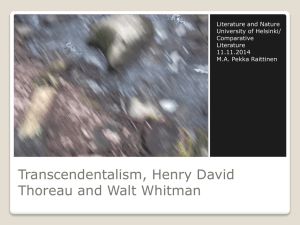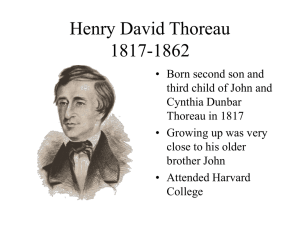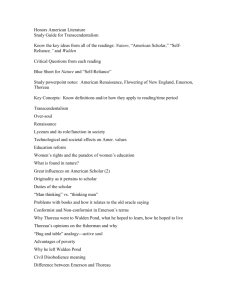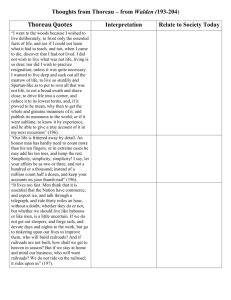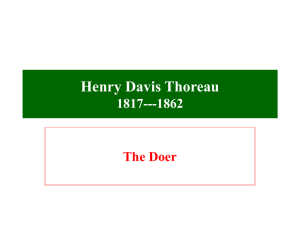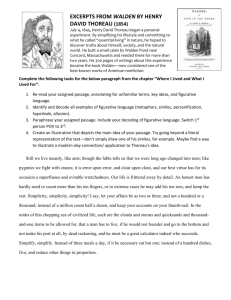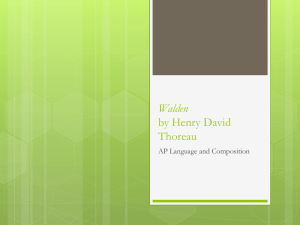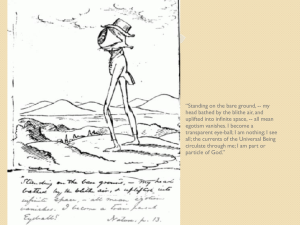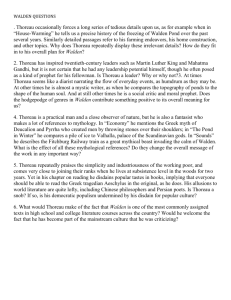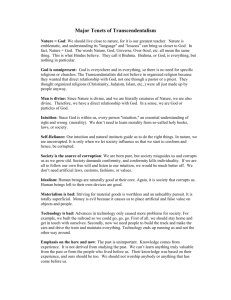Walden Excerpts - Colorado Mesa University
advertisement
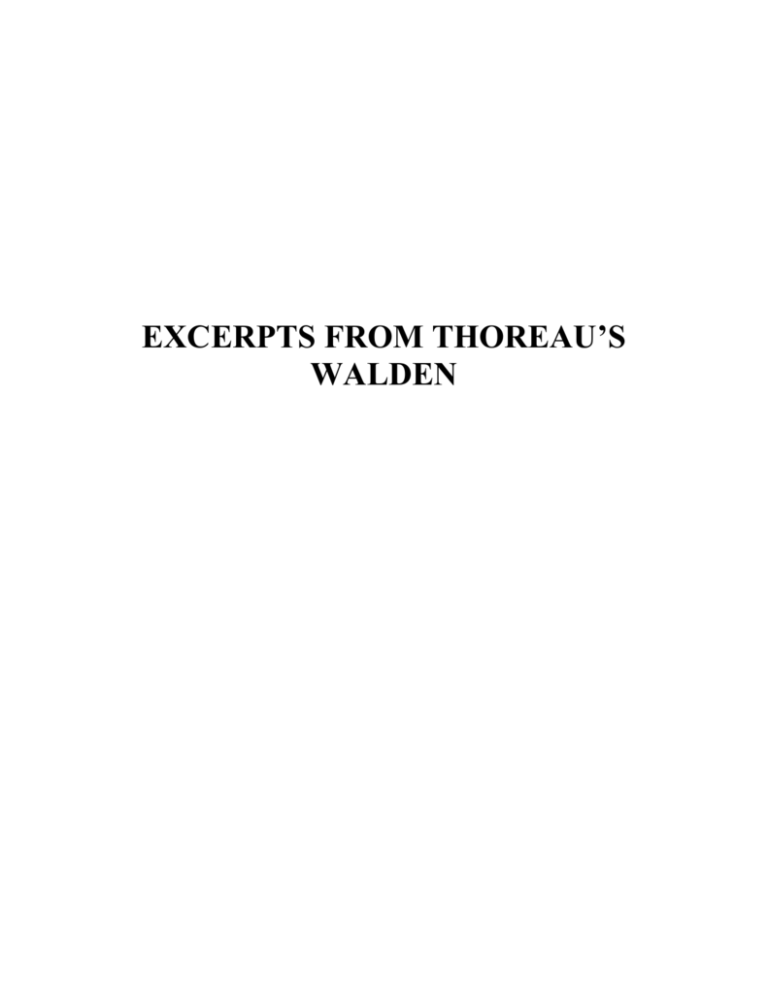
EXCERPTS FROM THOREAU’S WALDEN Excerpt from Thoreau’s Walden Chronology 1837: Thoreau graduates from Harvard at twenty, comes home to Concord, and looks for a career. Probably begins a journal. 1838: Gives his first lecture before the Concord Lyceum, thus initiating a practice that was to have an important effect on his writing. 1839: With his brother John, embarks on a “fluvial excursion” along the Concord and Merrimack, and gather material for The Week. 1840 Makes his bow as a poet: the Transcendentalist Dial prints his lyric about Edmund Sewall. 1841 As handyman and friend, takes up residence with the Emersons. Is attracted to Linda Emerson. 1842 Publishes in eh Dial which carries nine of his best poems and his essay “Natural History of Massachusetts” 1843 Leaves Emerson’s home to act as a tutor to Emerson’s nephew at Staten Island and to try his luck with the New York literary market. More publications of essays and poems. 1845: Goes to live in a hut beside Walden Pond. Commences his period of greatest literary productivity. 1846 Travels to Main; gathers some of the material later to go into The Maine Woods. 1847. Ends Walden experiment; resumes residence at Emerson home. 1849: Thoreau’s first book, the Week, and most influential essay, “Civil Disobedience,” published. 1854 Walden or Life in the Woods published. 1857 Fight over slavery intensifies; Thoreau meets John Brown and is deeply impressed by him. 1860 More essays, including two on Brown are printed. 1862 Dies of tuberculosis on spring. Where I lived…. By surveying, carpentry, and day-labor of various other kinds in the village in the meanwhile, for I have as many trades as fingers, I had earned $13.34. The expense of food for eight months, namely, from July 4th to March 1st, the time when these estimates were made —though I lived there more than two years—not counting potatoes, a little green corn, and some peas, which I had raised, nor considering the value of what was on hand at the last date was: So I went on for some days cutting, and hewing timber, and also studs and rafters, all with my narrow axe, not having any communicable or scholar-like thoughts, singing to myself, Men say they know many things; But lo! They have taken wings— The arts and sciences, And a thousand appliances; The wind that blows Is all that anybody knows Thoreau on Solitude: This is a delicious evening, when the whole body is one sense, and imbibes delight through every pore. I go and come with a strange liberty in Nature, a part of herself. As I walk along the stony shore of the pond in my short sleeves, though it is coll as well as cloudy and windy, and I see nothing special to attract me, all the elements are unusually congenial to me. The bullfrogs trump to usher in the night, and the note of the whippoorwill is borne on the rippling wind over the water. Sympathy with the fluttering alder and poplar leaves almost takes away my breath; yet, like the lke, my serenity is rippled but not ruffled. These small waves raised by the evening wind are as remote from storm as the smooth reflecting surface. Though it is now dark, the wind still blows and roars in the wood, the waves still dash, and some creatures lull the rest with their notes. The repose is never complete. The wildest animals do not repose, but seek their prey now; the fox, and skunk, and rabbit, now roam the fields and woods without fear. They are Nature’s watchmen—links which connect the days of animated life….
